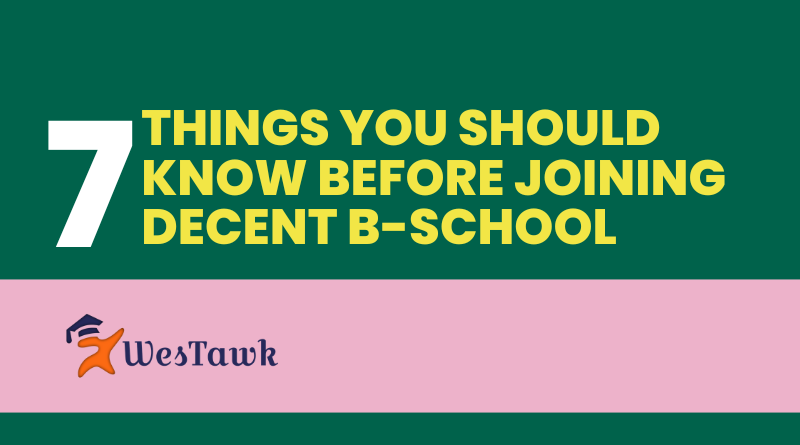7 Things you should know before joining decent B-School
To help those looking to start their MBA, we asked business leaders and past MBA students this question for their best advice. From having prior literacy in finance and accounting to communicating your professional goals to your current company, here are ten things to know before starting your MBA:
1. Be proactive: Sit in the front row, be engaged, ask questions. Don’t be afraid of asking the wrong question, everybody does sooner or later. If there is a guest speaker, really leverage their knowledge. Don’t wait until the lecture is over to ask a question in a side bar. Most of your professors will be professional academics with limited real world business experience. If are fortunate enough to have a former C-level executive as a professor or lecturer, get them to talk about actual challenges they’ve had.
2.Take the pre-reading seriously: “Make sure you read all of the case studies set, as discussions in class are focused around these for most subjects,” says Paul.
“It’ll give you the best platform to learn with your cohort and classmates. Most of them are incredibly interesting and can set you up nicely to learn for assignments and exams.”
3. Do a short term course: Try to get at least one certification course done before you start your MBA. You might not get much time once you start with your classes, hence it would be a good idea to get take up a course before that. You can do a course that is related to the specialization (that you would eventually choose in the 2nd year), or it can be a generalized relevant course like Google analytics, Communication skills, Google Adword, Advanced excel, etc. However, make sure that you enroll in a course from a recognized website like Coursera, edX only.
4.Learn Excel: Excel will be your best friend throughout your MBA journey. If you already have an experience of working with excel, that’s great; but if you aren’t very familiar with excel, you might want to start brushing up your skills. Almost all your projects during your MBA will require you to work on excel, so try to learn not just the basics, but also shortcuts that can help you to optimize your time during your projects. From Pivot table to analytics, you can do wonders with excel, so invest some time now and learn you’re way through excel.
6. Create a LinkedIn Profile: If you have a stellar LinkedIn profile, you can move to the next point. However, if you do not already have one in place, it is time you start building it. This will also help you expand your network; you can connect with the alumni and seek their guidance in times of need.
Also, LinkedIn rolls out the opportunity to become the LinkedIn Campus Editor for your campus, for the assessment is based on your profile.
7.Build your Resume: Most B-schools start their summer placements after a period of 8-9 weeks upon the commencement of the program. Hence, it is important to draft your resume ready and analyze the gaps which will give you a clear indication of where should you direct your efforts.
You will not have a lot of time at your disposal once you enter the college – as you will be swarmed by a plethora of tests, assignments and much more and even before you realize it, top firms would start visiting the college and you might end up losing big opportunities.




